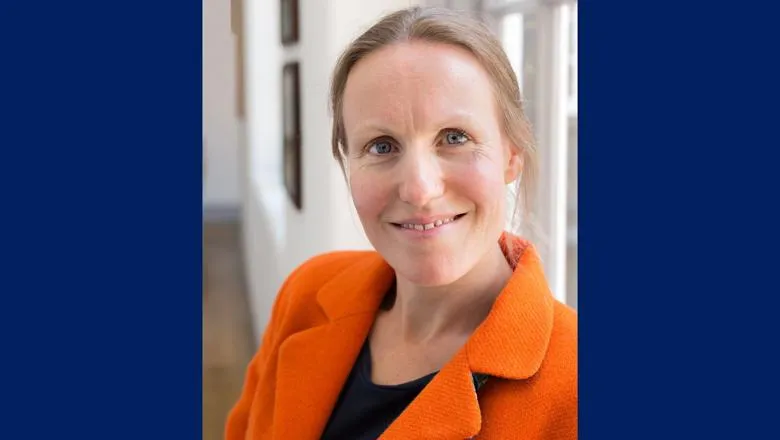08 March 2019
#WomenOfKings - Kate Bazin
Celebrating and elevating King’s women for International Women's Day.

It's International Women's Day on Friday 8 March – a global day celebrating the social, economic, cultural and political achievements of women. This year's theme is Balance for Better, which calls for a more gender-balanced society. From the board room to the government, media coverage to employment, gender balance is essential for economies and communities to thrive.
To celebrate International Women's Day, we spoke to women from King's Faculty of Life Science & Medicine about their careers, inspirations and what drives them.
'Physiotherapy is a continuously developing profession and it is exciting to be part of it. It is essential that physiotherapy adapts proactively to meet the needs of the population – local to global.'
Kate Bazin is a Teaching Fellow in the School of Population Health & Environmental Sciences, Physiotherapy Department Senior Tutor and Careers & Employability Liaison.
What are you proudest of in your career?
Overall having determination and commitment to working hard to get where I want to go, even when sometimes that involved a leap of faith. Some examples below:
- Making the decision to move from being a full-time clinical physiotherapist to moving into education and having to gain more teaching experience whilst working clinically to enable me to get a teaching post at King’s;
- Completing an advanced MSc in Cardio-respiratory Physiotherapy whilst working full time clinically;
- Completing a PGCE at King’s, with some modules carried out whilst on maternity leave.
Why did you decide to go into this field of study/research/work?
Physiotherapy has been a great career for me so far. I have experienced working with inspiring patients and within fantastic clinical teams, predominantly within critical care and respiratory medicine. I have felt integral to those teams and have seen the impact that my physiotherapy interventions have made to the outcomes of patients. I have enjoyed supporting the learning of students and other staff members in clinical practice and thrive on helping students and clinicians to get the most out of practice education experiences in my current role.
What would you tell women who want to study in your field?
I believe that this is an important time for physiotherapy and for physiotherapy education. Evidence suggests the irrefutable link between activity levels and the reduction of disease and mortality. Physiotherapists restore function and maximise physical potential, whether working with elite athletes or in palliative care. We are well placed to be health promoters and have the skills to facilitate behaviour change, working towards reducing the burden on the overstretched NHS, consistent with the NHS five year forward view and next steps (NHS 2017).
Who or what made you want to work in this field? How has your field changed since you started, and where do you see it going in the future?
My mother is a physiotherapist and has achieved great things for the profession and is an ongoing role-model. As I was growing up she always worked full-time and I was inspired by how much she could do in a day, including how she could manage to be a mum and develop her career alongside. I do remember doing my homework in a physio department and kicking a football around a physio gym a lot after school with my brother! I suppose therefore that I had been immersed in physiotherapy from an early age, although I still did not fully understand the real benefit that it could have until I did some work experience aged 14. I was then determined to get my BSc in Physiotherapy.
Physiotherapy is a continuously developing profession and it is exciting to be part of it. It is essential that physiotherapy adapts proactively to meet the needs of the population – local to global, through evidence-based developments in practice and in technology. It would be great to see physiotherapists across the world share the benefits of being autonomous practitioners.
